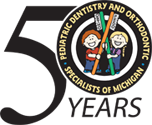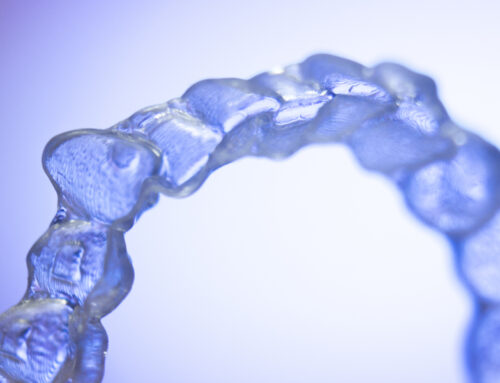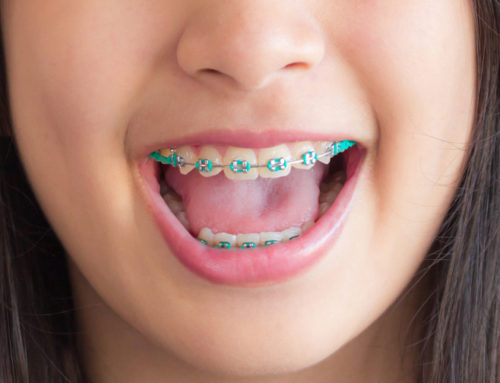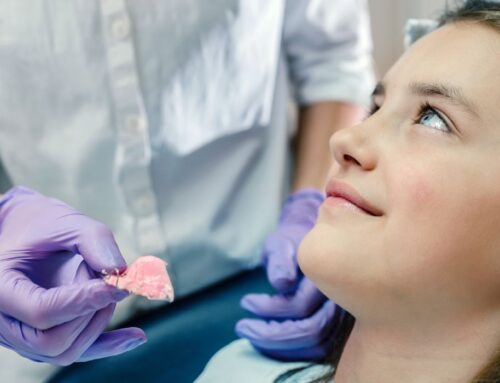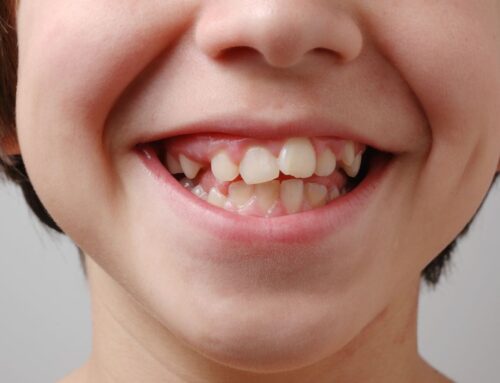It seems rather ironic that October is National Orthodontic Health Month because it is the month that ends with Halloween – the candy holiday. From an orthodontist’s perspective, Halloween can be stressful because of the harm candy can do to our patients wearing braces. On the other hand, maybe it is a fitting month to recognize orthodontic health, as it can be a friendly reminder to our patients wearing braces to practice good habits.
Most people intuitively know that patients wearing braces should not be eating sticky, hard, or chewy foods and candy. These types of foods stick to braces, deliver large quantities of cavity-fueling sugar to the mouth, and can be hard enough to physically break braces loose. Hard candy can also damage braces so they don’t function properly. Any damaged or broken braces vastly slow down orthodontic treatment and can cause discomfort to patients if loose braces or wires begin to poke into the cheeks or gums.
No matter what the dietary choices of our patients include, caring for the teeth and gums is equally important for patients wearing braces. Dr. AJ Ker reminds us that, “taking care of your teeth with braces can be a bit more difficult and time consuming.” Braces can cause food to get trapped in tiny, hard to reach spaces, and we know that this can lead to plaque accumulation if not taken care of properly. Plaque that is not promptly removed can lead to other dental problems such as cavities and inflammation of the gums called gingivitis. In order to prevent these issues, you must be prepared to spend a little extra time on your teeth than those without braces.
Here are some simple reminders to share with your child:
1.Brush your teeth at least twice a day.
- Brush your teeth for at least two minutes, and be sure to get under the wires and around the gum line.
- Floss or use a waterpik daily to remove plaque from between the teeth that the toothbrush will not remove
- Gently clean under wires and between brackets with a “proxybrush” or “Christmas tree brush” to remove all plaque. The waterpik can be useful in this way also.
- Use mouthwash to help control bad bacteria in your mouth and keep breath fresh.
- Follow the “Foods to Avoid” list your orthodontist provides to you.
We hope this is useful to you and your child. If you have any other questions, please feel free to discuss them with us.
If you would like more information about National Orthodontic Healthy Month, please feel free to ask us about it at our office.
About Pediatric Dentistry and Orthodontic Specialists of Michigan, the offices of Drs. Delaney, Plunkett, Ralstrom, Makowski, Thanasas, Ker, and Associates
Pediatric Dentistry and Orthodontic Specialists of Michigan have specialized in pediatric dentistry and orthodontics since 1968. Our family-friendly and newly renovated office gives patients and families a more comfortable and consistent experience with dentistry from the very beginning. Our pediatric dentists treat children from newborn to 18 years of age while our orthodontists provide care for both children and adults and are proud to be Preferred Providers of Invisalign and Invisalign Teen services. The ability to treat all patients with compassion and individuality, including those that may have special needs reaches beyond our facility, which has treatment rooms available for children who require additional privacy and customized care options. We pioneered valued hospital affiliations to allow dental services to be performed at DMC Children’s Hospital and St. John Macomb Hospital, when appropriate or necessary, and our specialists are also proud to be on staff at Henry Ford and Beaumont hospitals.
